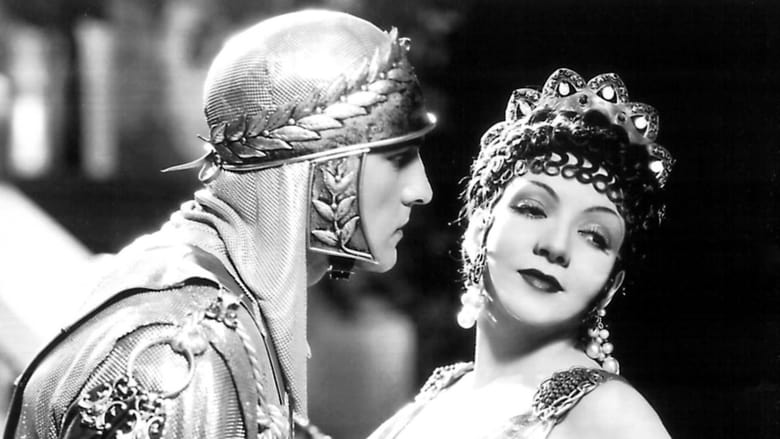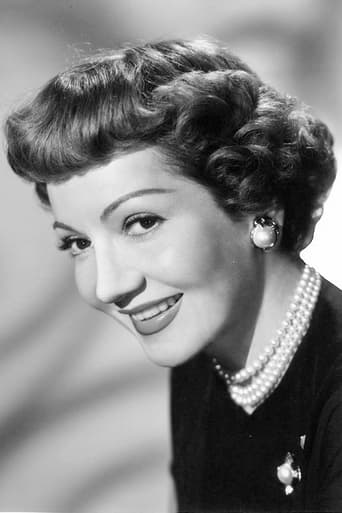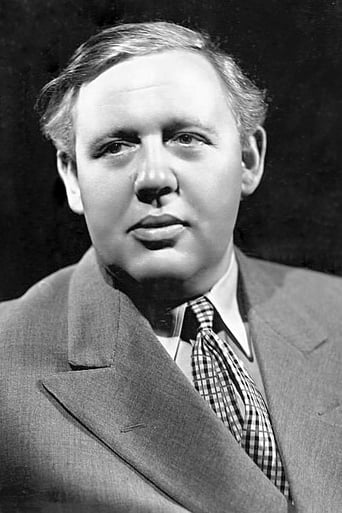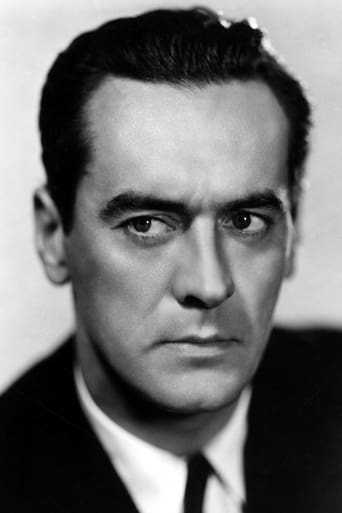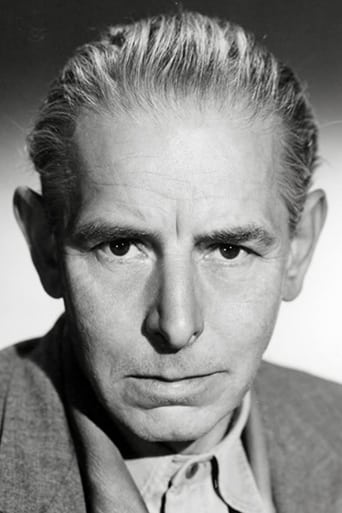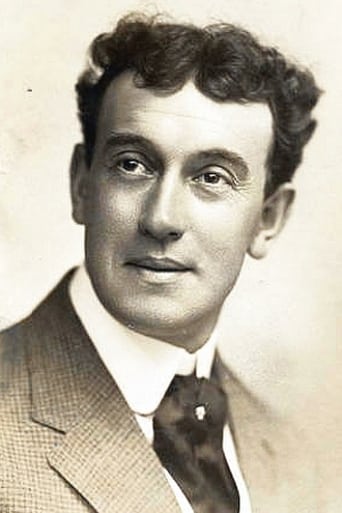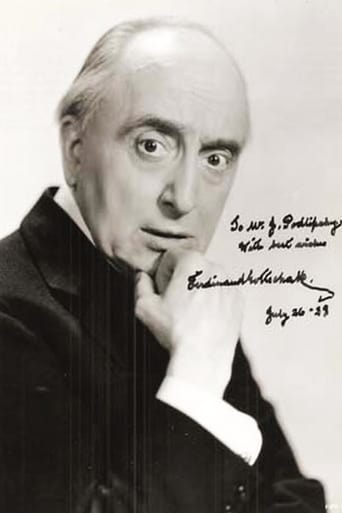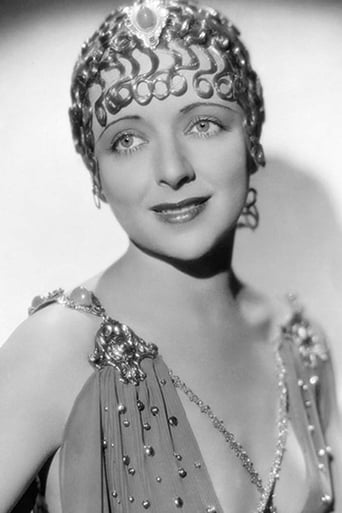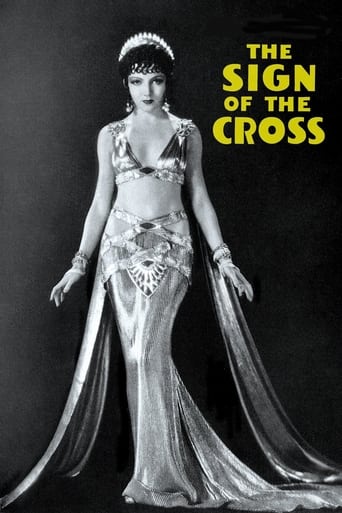
The Sign of the Cross
November. 30,1932 NRAfter burning Rome, Emperor Nero decides to blame the Christians, and issues the edict that they are all to be caught and sent to the arena. Two old Christians are caught, and about to be hauled off, when Marcus, the highest military official in Rome, comes upon them. When he sees their stepdaughter Mercia, he instantly falls in love with her and frees them. Marcus pursues Mercia, which gets him into trouble with Emperor (for being easy on Christians) and with the Empress, who loves him and is jealous.
Similar titles




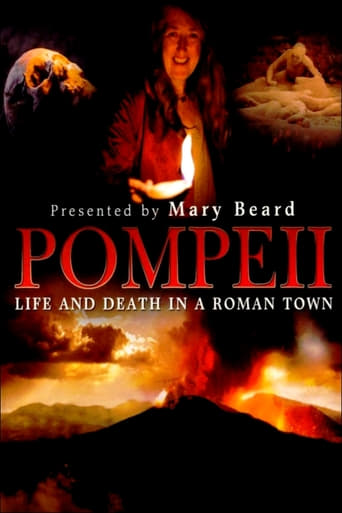
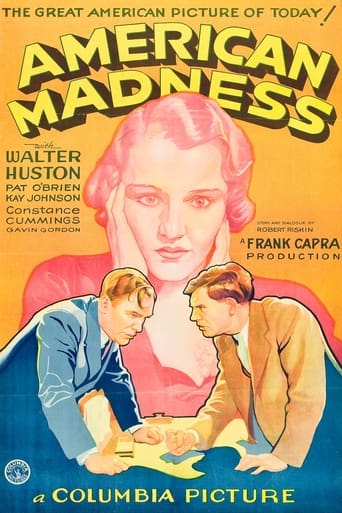
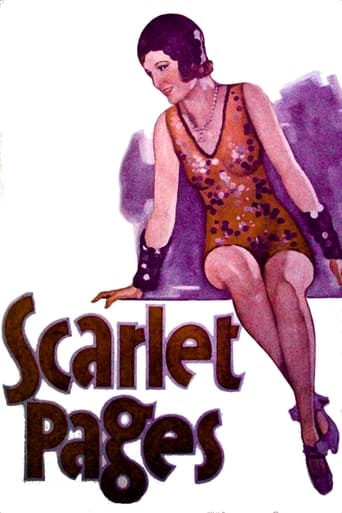
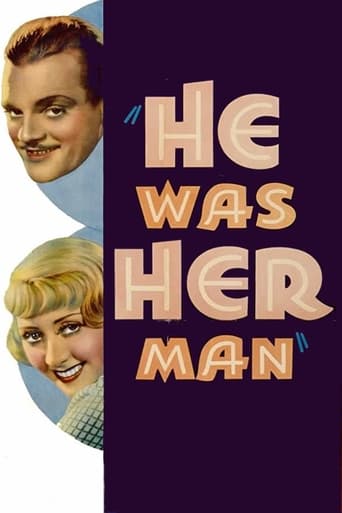


Reviews
Too much of everything
A terrific literary drama and character piece that shows how the process of creating art can be seen differently by those doing it and those looking at it from the outside.
The movie's not perfect, but it sticks the landing of its message. It was engaging - thrilling at times - and I personally thought it was a great time.
It’s sentimental, ridiculously long and only occasionally funny
The plot.After burning Rome, Emperor Nero decides to blame the Christians, and issues the edict that they are all to be caught and sent to the arena. Two old Christians are caught, and about to be hauled off, when Marcus, the highest military official in Rome, comes upon them. When he sees their stepdaughter Mercia, he instantly falls in love with her and frees them. Marcus pursues Mercia, which gets him into trouble with Emperor (for being easy on Christians) and with the Empress, who loves him and is jealous.Never was a big fan of Demille and this movie might be why. Acting is over the top and the direction heavy handed.Laughton is especially bizarre. Rubber nose that doesn't match his own skin color so it looks like he has a red nose through out.The romance angle is really poorly done. In fact the writing is really horrible
How did DeMille do it? How did he make a film that is wildly decadent, revelling in the debaucheries of Ancient Rome, while still making it a moving tribute to the Christian martyrs of the time? The way he balances spectacle, comedy, drama, moralising and debauchery is pure genius! If you've never seen a pre-Hollywood-production-code movie before you may be surprised to see a glimpse of Claudette Colbert's nipples as she's bathing in milk, to see an erotic lesbian dance sequence, to see a naked young man sitting next to the very gay Nero of Charles Laughton! And then DeMille joyously recreates a whole day of gruesome spectacles in the arena in all their gruesome detail. But then, somehow, he switches the whole mood and, thanks to excellent performances from Fredric March, Elissa Landi and young Tommy Conlon, creates a deeply moving finale, that tragically anticipates the horrors of the Holocaust. An amazing film in every way, and so much better than "Quo Vadis"!
THE SIGN OF THE CROSS (Paramount, 1932), directed by Cecil B. DeMille, returns its director to the genre to what he's best known, the religious spectacle, his first since THE KING OF KINGS (Pathe, 1927) starring H.B. Warner as Jesus the Christ. While this title certainly indicates another retelling into the life of Christ, the script, taken from an old play by Wilson Barrett, focuses more on Christians following in the teachings of Jesus years after His crucifixion, only to face suffering and prosecution for their faith.The setting is 64 A.D. where the Emperor Nero (Charles Laughton) is introduced playing his lyre while watching in laughter the flames raging through the city of Rome. Although responsible for starting the fire, Nero places the blame on the Christians, arranging for his guards to have them placed under arrest. His wife, Poppara (Claudette Colbert), is an adulteress whose only desire is the manly Marcus Superbus (Fredric March), a prefect of Rome, but cannot put her hold on him after learning from Dacia (Vivian Tobin) of his love for Mercia (Elissa Landi), a Christian girl. As much as Marcus believes "Christianity is stupid," he tries his best to persuade Mercia to renounce her faith and marry him. Tigellinus (Ian Keith), Marcus' rival, sees an opportunity in making trouble for them both.With crime dramas, drawing room comedies and/or social related issues as common theme during the Depression era, THE SIGN OF THE CROSS was something out of the ordinary. In true DeMille fashion, THE SIGN OF THE CROSS is not only a 128 minute spectacle with a three minute intermission in the midway point, but a large-scale production with lavish sets and cast of thousands accurately costumed according to its time structure. Of the performers in this Biblical story, Elissa Landi, the central character, seems out of place with her 1932 head-dress while Claudette Colbert, in her first "bad girl" role, quite evident with her lipstick and pencil drawn eyelashes, has her cherished moment bathing in a pool of milk gulped along side by two kittens at a distance. Fredric March as the Roman soldier who rules with the cracking of his whip, physically makes a convincing Marcus, though some of his badly scripted dialog, along with others in the cast, may provoke laughter for any contemporary viewer. Charles Laughton's Nero is exceptional, right down to his curly hair with added putty in the middle of his nose adding sharpness to his cruel facial expression. Although his scenes are regrettably limited, Laughton simply stands out, especially as he watches in sleepy-eyed boredom the slaughter of victims at the arena as he sits back eating large portions of food. Other members in the large cast include Tommy Conlan as Stephanus, the teenage Christian boy; Nat Pendleton, Arthur Hohl, Charles Middleton; lions, tigers, crocodiles and elephants as uncredited extras.As much as the plot was reworked into the MGM spectacle of QUO VADIS (1951) starring Robert Taylor as Marcus; with Deborah Kerr and Peter Ustinov giving a tour-da-force performance as Nero, nothing can compare with the intense arena sequence found in THE SIGN OF THE CROSS. Graphic, then and now, this sequence, along with "The Naked Moon" dance performed by the wicked Ancaria (Joyzelle Joyner), was all that was missing when THE SIGN OF THE CROSS was not only reissued to theaters in 1944, but when sold to commercial television around the 1960s. In its place was a ten minute prologue written by Dudley Nichols, set during World War II with the cast featuring Stanley Ridges (Chaplain Thomas Lloyd); Arthur Shields (Captain James Costello); James Millican (Captain Kevin Driscoll); William Forrest (Colonel Hugh Mason); Tom Tully (Hoboken); Oliver Thorndyke (Lieutenant Roger Hammond); and Joel Allen. The new opening revolves around bombardiers being assigned on a dangerous mission and heading out to their destination. As the airplane flies over the Colosseum, a discussion about to the prosecution of Christians under Nero's regime leads to a flashback and events that takes place. It wasn't until March 14, 1993, when American Movie Classics cable channel presented the original uncut 1932 theatrical release of THE SIGN OF THE CROSS that was obtained from the DeMille estate, and played it as part of AMC's initial Film Preservation Society festival. Without these missing scenes, THE SIGN OF THE CROSS would have been hopelessly dull and talkie, such as the case with the 1944 reissue that had circulated for nearly half a century. In 1995, Universal Home Video distributed the now uncensored 1932 version to home video and then to DVD in 2006. After AMC ceased airing THE SIGN OF THE CROSS in 1999, Turner Classic Movies picked up its option by airing this DeMille epic where it played from occasionally from 2004 to 2007. Regardless of its flaws, THE SIGN OF THE CROSS is prime DeMille, best suited for viewing during the season of Lent or Good Friday. Hail Caesar!! (***1/2)
In typical DeMille fashion and perhaps on purpose he makes the object of his morality (the Romans) more fascinating than the people (Christians) we are supposed to identify with. The film is slow and plodding as many of the early talkies were with the transition from silent to sound taking until about 1934 before directors were comfortable enough in the new medium to create more cinematic stylish films. However, the bonus to many of the first sound films was a lack of censorship that movie goers would not witness again until the 1960's . Here we have pre-code semi-nudity, sexual suggestion of threesomes, orgies , and lesbianism, as well as the truly horrific games sequence at the end of the film. All in all there is a lot to take in with the Sign of the Cross, and much of the acting Laughton, Colbert, March is very good unfortunately the film suffers from snails pacing and too much killjoy preachiness.
Top Streaming Movies











